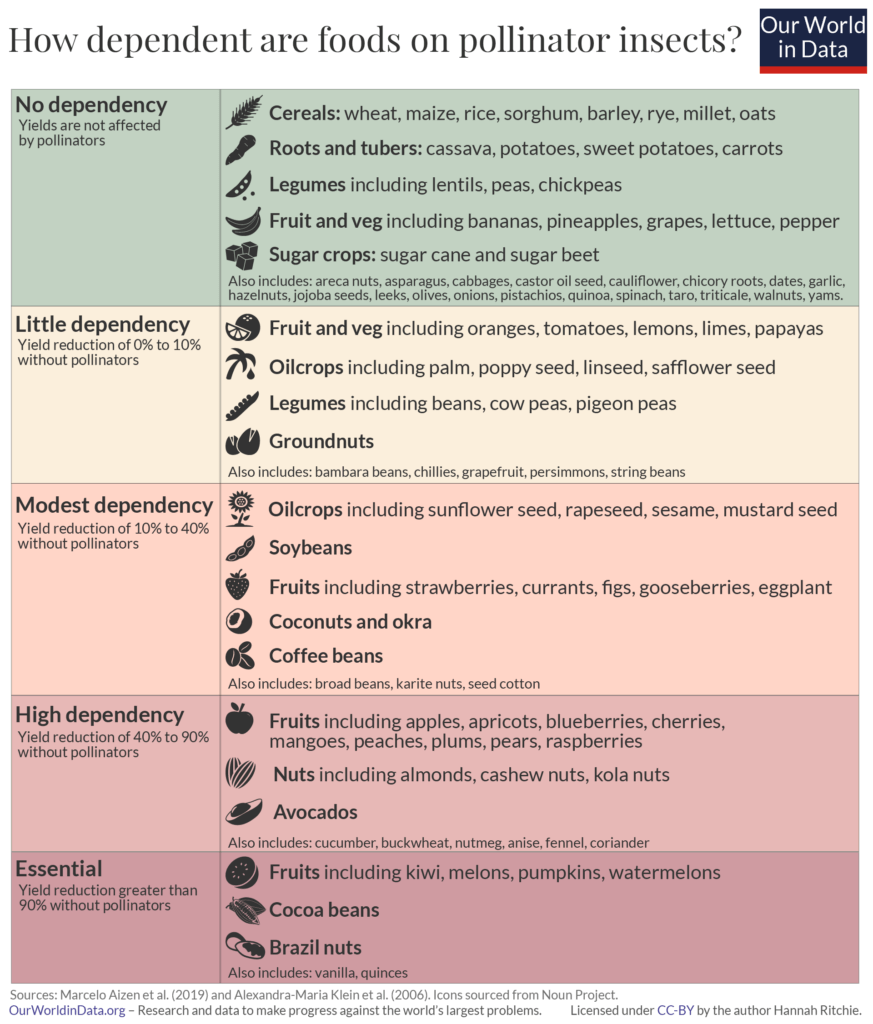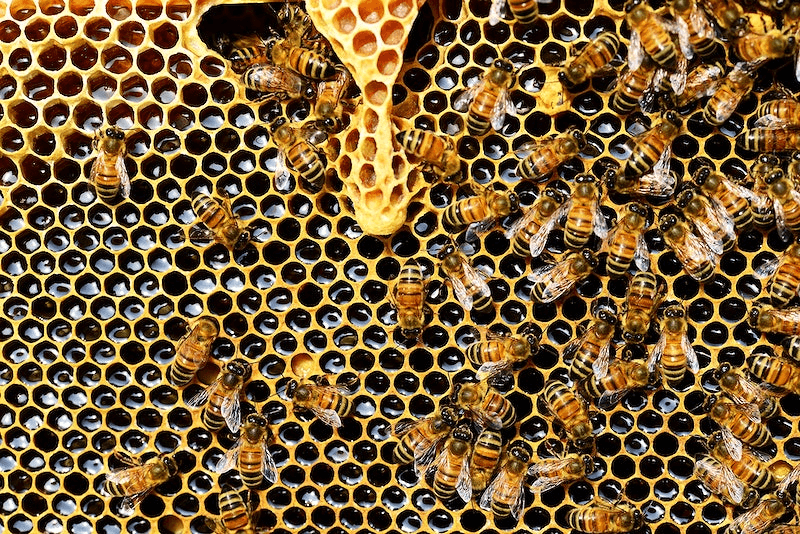Myth: The honeybees are disappearing
Fact: In 2020 the EU had approximately 19 million honeybee hives, managed by 615,000 beekeepers. These hives altogether produced 275,000 tonnes of honey. Beekeeping is practiced in all EU Member States where, together, they are the world’s second largest honey producer, after China with 500,000 tonnes. Despite millions of hives, people are worried about honeybees. Ask any number of people on the street, and most will claim honeybees are disappearing. Wrong!
In 2017, the EU had 16.4 million hives, so the 2020 number is an increase of 13.3 per cent. Fifteen years earlier in 2003, the amount of hives in the EU stood at a meagre 8.9 million. At a global level in 2019 there were 94 million beehives. According to the FAO, managed hives have increased worldwide by 83 per cent since 1961.
Myth: Mankind has only four years to live once the honeybees die
Fact: The most essential staple food crops on the planet, like corn, wheat, rice, soybeans and sorghum, are wind-pollinated or self-pollinating and need no insect help at all. Approximately 60 per cent of the total volume of food grown worldwide does not require animal pollination. Many staple foods, such as wheat, rice, and corn, are among the many crops that require no help from bees. They either self-pollinate or get help from the wind. Those foods make up a tremendous proportion of human calorie intake worldwide.
Nut producing trees such as walnuts, pecans and pistachios are usually wind-pollinated as well. Many economically important trees are also wind-pollinated, such as pines, spruces, firs and many hardwood trees.
Other staple food crops, like bananas and plantains, require no pollination of any form, as they are sterile and propagated from cuttings. Other foods such as root vegetables and salad crops will produce a useful food crop without pollination, though they may not set seed. In addition, many hybrid food crops rely entirely on human pollination to produce hybrid seeds. Apart from that, many common non-hybrid crops, like potatoes or heirloom tomatoes, are self-pollinated.
Among the other crops that use animal pollinators, there are varying degrees of how much the plants need them. Only a very small portion absolutely require animal pollination, while many more are “highly dependent” on it. Production of the remaining crops would likely continue without bees with only slightly lower yields.

Although it is very important to protect all species of pollinators from their various threats, it seems that the doom-laden statement that if the bee disappeared off the face of the earth, man would only have four years left to live, should be taken with a large grain of salt. Fun fact: although the quote is often credited to Einstein, thorough research has not revealed any link between the quote and the man.
Myth: Pollinators suffer from GMOs
Fact: There have been numerous claims that particular GMO crops are harmful to pollinators, but there is currently no proof whatsoever to support these claims. Much of the negative impact on hive populations over the past 20 years can be linked to the varroa mite, not agriculture. Commercial GM crops have not been found to have any negative consequences in extensive field testing.
The EU Commission in a recent report, identified many bee pathogens, including two species of mites, four species of fungi, nine species of bacteria and 12 species of viruses! And if that wasn’t enough, there is a beetle, a louse, a wasp and two species of butterflies out there to harm the honeybees. And these are just the biological pathogens. Then there are several abiotic stress factors, such as intensive agriculture, habitat fragmentation and loss, wrong use of crop protection products, poor bee nutrition leading to bee starvation and weak bee genetics.
Myth: Colony Collapse Disorder in honeybees is caused by GMOs

Fact: The sudden and widespread disappearances of adult honeybees from hives, termed Colony Collapse Disorder (CCD), was first documented as early as 1869, long before the arrival of GMOs. Claims have been circulated that insect protected GM crops harm bees, but these assertions have been refuted by the mainstream scientific community. According to several scientific studies it is a variety of factors which are impacting bee health, mostly biotic stress factors, such as fungi, mites, and other bee pathogens. But also, abiotic stress factors, such as habitat loss and poor bee nutrition. Genetically modified plants and their impact on honeybees have been widely studied, and the results indicate that GM plants are not harmful to bees.
Marcel Bruins studied plant breeding at Wageningen University, followed by a PhD on Fusarium resistance in wheat. Marcel has been managing global IP portfolios, and more specifically plant breeders’ rights. Follow Marcel on Twitter @MBruins123
A version of this article was originally posted at European Seed and has been reposted here with permission. Any reposting should credit the original author and provide links to both the GLP and the original article. Find European Seed on Twitter @EuropeanSeed

